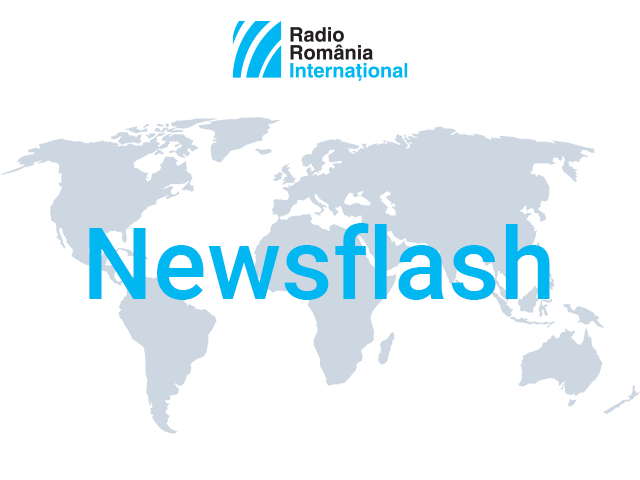January 4, 2024 UPDATE
Click here for the latest news from RRI

Newsroom, 04.01.2024, 19:54
Meeting – The Romanian government met Thursday in the first session of 2024. The government members adopted, among other things, an initiative to optimize the process of issuing passports. The elaborated draft law, which will be sent to Parliament for debate and approval, makes concise and clear the role of the General Directorate of Passports in relation to attesting the quality of Romanian citizenship, in cooperation with other institutions. In order to optimize the process of issuing travel documents, they consider giving the General Directorate of Passports the possibility to verify the collection of the amount representing the value of simple passports, and to return the amount respectively, in situations where it was not paid properly or the related service was not provided. Another draft law adopted on Thursday stipulates that disputes resulting from contracts of mandate concluded by state companies in Romania must be settled in the country. The move transposes European Union norms into the law on international judicial cooperation in criminal and criminal procedure matters. Also on Thursday, the Government adopted a modification of the funding from the state budget of the earthquakes and landslides natural risk mapping.
Missiles – NATO has announced its decision to support a group of member countries including Germany, the Netherlands, Romania and Spain to purchase up to 1,000 Patriot anti-aircraft missiles. According to NATO, the European production will be increased to cover the growing demand, being also aimed at strengthening the European Sky Shield. The contract stands at 5.5 billion dollars and the cost of each Patriot missile is around 4 million dollars. The contract also covers the maintenance of the Patriot defense systems. NATO Secretary General Jens Stoltenberg has underlined that raising the ammunition production is essential for the security of the allied countries and Ukraine.
Agreement — A person’s period of work and their rights to pension have mutually been recognized by Romania and the United States, after the law ratifying the agreement on the issue was promulgated by Romania’s president Klaus Iohannis. Under the new agreement, it will be possible to capitalize on the periods worked both in Romania and the United States, in order to open the pension right on the principle of accumulation, with the proportional granting of the pension by each state, depending on the contribution periods completed. The document also provides for the export of pensions, a major facility regarding the mobility of pensioners in the two countries and maintaining their access to the pension rights being paid. The bill also includes provisions for the posted workers who have been exempted from paying health and social security contributions to the country where they were sent to work.
Priorities – Solving the problem of resident physicians who passed the specialty exam at the end of 2023 was mentioned as a priority for the beginning of the year by Romania’s Prime Minister Marcel Ciolacu. At the start of the first Government meeting in 2024, the Prime Minister recalled that there are approximately 4,500 doctors in which the Romanian state has invested hundreds of millions of Euros and stated that the government must ensure that they remain in Romania. Ciolacu asked the Ministries of Health and Development to update the lists of vacant positions and to come up with memoranda for organizing contests to fill these vacancies, and he also asked the Finance Ministry to cooperate so that this should happen as soon as possible. According to the data of the European Statistical Office, Romania had 350 active physicians per 100,000 inhabitants in 2021. The ranking was led by Greece with 629 physicians per 100,000 inhabitants, and the lowest rate was recorded in France with 318 doctors per 100,000 inhabitants. All in all, in 2021, there were 1.82 million doctors in the European Union.
Chisinau – Almost 81% of the primary and secondary school children in the Republic of Moldova are taught in Romanian, according to data recently published by the National Bureau of Statistics in Chisinau. Besides this percentage, 19% are taught in Russian and 0.1% study in English. In the 2023-2024 school year, over 1,200 general primary and secondary education institutions operate in the Republic of Moldova, of which almost 900 are in rural areas. Statistical data also show that the number of students studying in public schools decreased this school year compared to the previous one, and more and more students are studying in private schools. Also, last year, the number of secondary school graduates decreased by almost 5%, and that of high school graduates increased by 4%. (LS)




























